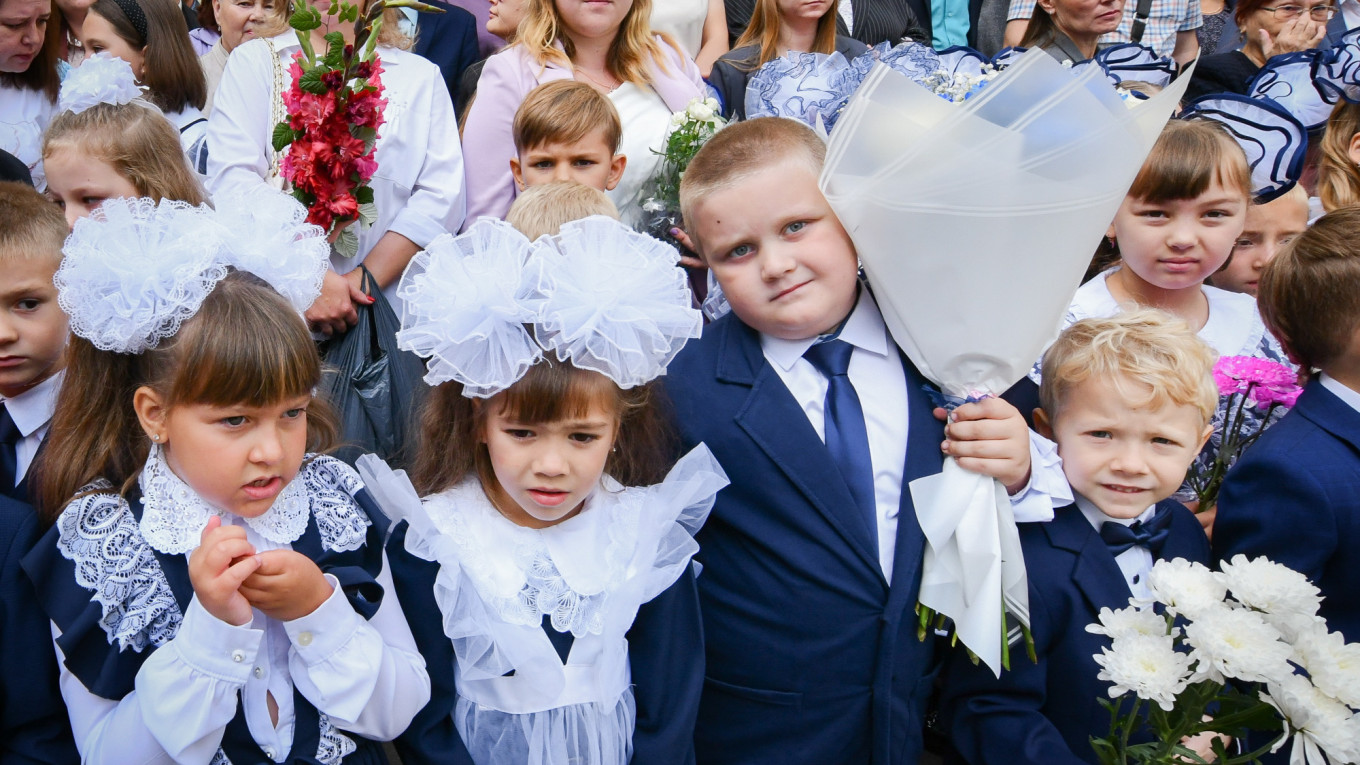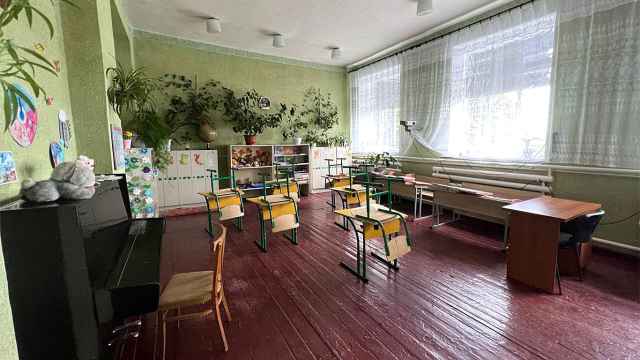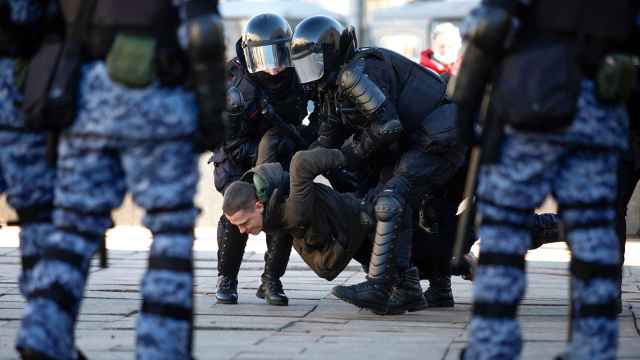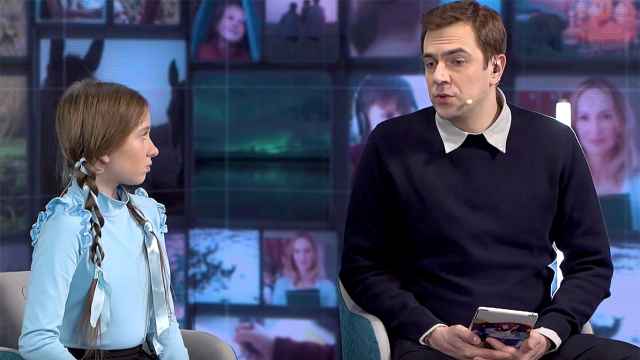The most horrifying story I have ever heard is that of the Pied Piper of Hamelin, who first lured all the rats out of the city by playing his magic pipe. The city authorities refused to pay him. After all, they said, all he had done was play a little tune.
So the Piper played again. But this time he led away all the children.
They disappeared forever.
We can now see this tale unfolding before our eyes. Over the past 10 years, the number of children in Russia starting school on Sept. 1, has dropped by 200,000, from 1.7 million to 1.5 million. The tragedy becomes even greater when you realize that in the 2010s, the number of children starting school each year was growing, reaching 2 million by 2020.
Rosstat even padded the figures by counting Ukrainian schoolchildren to the total. First from Crimea and Sevastopol, then from the occupied parts of the Luhansk, Donetsk, Zaporizhzhia and Kherson regions.
But starting in 2023, the numbers collapsed. Russia lost half a million first graders despite all the government’s frantic measures to fix the demographic crisis. If sociologists are to be believed, the decline will continue.
Children start school at six or seven years old, so it takes nearly a decade for the impact of Kremlin policies to become visible. What was it that began all those years ago that produced such a steep loss of children?
As one of the “rats” myself, with many “rat” children, I can tell you. It started when the Kremlin drove out problematic people like me.
Looking back at the past 10 years, starting from the annexation of Crimea — or a little earlier, with the 2013 law banning “LGBT propaganda.” The first proverbial rats to be expelled by the Piper were gays and lesbians. They have children, too — and the first thing banned for them was the right to adopt children.
Then in 2014, after the annexation of Crimea, opponents of this action began quietly preparing to emigrate. Within a couple of years, they had left, sent their children to study in foreign schools, or both.
Next came the “foreign agents” — more rats! Until 2022, the Piper expelled them gradually, designating four or so new foreign agents each Friday, without insisting they leave immediately. But many ended up leaving right away, especially after the full-scale invasion of Ukraine.
I must confess — on that early morning of Feb. 24, my first thought wasn’t about how terrible it was that my country was bombing a neighboring country. Instinctively, my first thought was not about Ukrainians sitting in bomb shelters or distributing weapons at territorial defense posts.
My first thought was of my children. I thought: “The world is closing for my kids; they will never see the Cathedral of Santa Maria del Fiore.” I thought of the Piper: if they are exterminating the rats, the first thing you do is save the children — because that is what always comes next.
So I left, taking my children with me. One of them started first grade last year — not in Russia — thus adding my own small contribution to the statistical loss of first graders.
Finally, the Piper turned to the most numerous target: migrants. On every television channel, our collective Piper screamed that these unwanted newcomers should be removed from our streets, that they should not work on our construction sites, sweep our yards, deliver our shawarma, drive our taxis and certainly not let their children attend our schools!
Migrants were also taken off to war — either directly or via the police station. So they left, or never came in the first place. Their children did not go to school last year, or the year before. Now they are no longer admitted, because teachers have become the sort who refuse to take them in.
For 10 full years, whole categories of people — each more numerous than the last — were declared akin to “rats” in Russia and expelled. So what did you expect? After eradicating the rats, the Piper began eradicating the children. The result was inevitable.
A Message from The Moscow Times:
Dear readers,
We are facing unprecedented challenges. Russia's Prosecutor General's Office has designated The Moscow Times as an "undesirable" organization, criminalizing our work and putting our staff at risk of prosecution. This follows our earlier unjust labeling as a "foreign agent."
These actions are direct attempts to silence independent journalism in Russia. The authorities claim our work "discredits the decisions of the Russian leadership." We see things differently: we strive to provide accurate, unbiased reporting on Russia.
We, the journalists of The Moscow Times, refuse to be silenced. But to continue our work, we need your help.
Your support, no matter how small, makes a world of difference. If you can, please support us monthly starting from just $2. It's quick to set up, and every contribution makes a significant impact.
By supporting The Moscow Times, you're defending open, independent journalism in the face of repression. Thank you for standing with us.
Remind me later.






